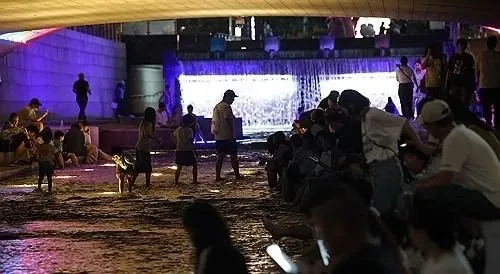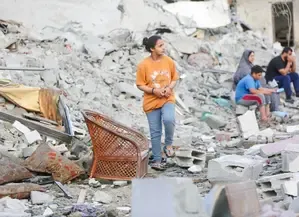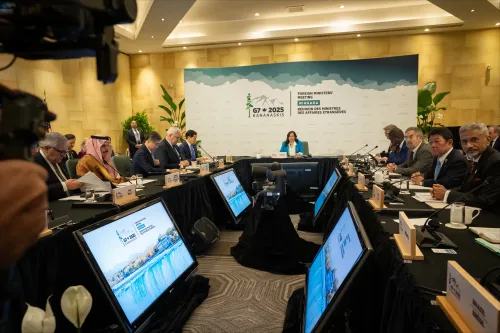Did Seoul Just Set a Record with 23 Tropical Nights in July?

Synopsis
Key Takeaways
- Seoul recorded a record high of 23 tropical nights in July.
- Daytime temperatures are expected to reach 37 degrees Celsius.
- This year's total of 25 tropical nights is the fifth highest on record.
- Tropical nights can lead to significant health risks.
- The phenomenon reflects ongoing climate changes.
Seoul, Aug 1 (NationPress) The state weather service reported an astonishing 23 tropical nights in July for South Korea's Seoul, marking a record high. Forecasts indicate that daytime temperatures in the capital are set to rise to an alarming 37 degrees Celsius.
According to the Korea Meteorological Administration (KMA), not just Seoul, but many other cities across the country—including Incheon, Cheongju in North Chungcheong Province, Gangneung in Gangwon Province, and Seogwipo on Jeju Island—also experienced these tropical nights between Thursday and Friday.
A tropical night is defined as a night when temperatures remain above 25 degrees Celsius from 6:01 p.m. to 9 a.m. the following day.
Seoul's record of 23 tropical nights is the highest recorded for any July since modern meteorological records began 117 years ago.
Including the tropical nights from June, the total for Seoul this year has reached 25, putting it fifth on the list of all-time records. The KMA anticipates that this ranking may improve as heat waves are expected to persist through August, according to reports from Yonhap.
On June 30, Seoul recorded its first tropical night of the season, with a nighttime temperature of 25.6 degrees Celsius.
This year's first tropical night occurred eight days later than last year's, which was on June 21, as per the KMA.
Factors such as high-pressure systems, warm and humid air masses, and the urban heat island effect contribute to the occurrence of tropical nights in South Korea. These conditions prevent nighttime temperatures from falling below 25 degrees Celsius, making it challenging for residents to sleep and raising the risk of heat-related health issues.
Tropical nights can severely disrupt sleep patterns and heighten the chances of heat-related illnesses, especially among vulnerable groups like the elderly and young children.
This unprecedented heat wave is not merely a weather anomaly but a clear indication of the ongoing climate shifts affecting various regions globally. The consequences of such extended heat persist even after sunset, as nighttime temperatures fail to provide relief from the extreme conditions.









